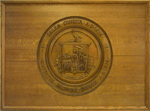Endicott Pear Tree: Difference between revisions
From Salem Links and Lore
No edit summary |
No edit summary |
||
| Line 7: | Line 7: | ||
==See Also== | ==See Also== | ||
[http://innopac.noblenet.org/search/Xvisitor%27s+guide+to+salem&searchscope=24&m=&SORT=D/Xvisitor%27s+guide+to+salem&searchscope=24&m=&SORT=D&search=visitor%27s+guide+to+salem&SUBKEY=visitor%27s%20guide%20to%20salem/1%2C9%2C9%2CB/frameset&FF=Xvisitor%27s+guide+to+salem&searchscope=24&m=&SORT=D&4%2C4%2C Visitor's Guide to Salem]1937 ed, p.259 | [http://innopac.noblenet.org/search/Xvisitor%27s+guide+to+salem&searchscope=24&m=&SORT=D/Xvisitor%27s+guide+to+salem&searchscope=24&m=&SORT=D&search=visitor%27s+guide+to+salem&SUBKEY=visitor%27s%20guide%20to%20salem/1%2C9%2C9%2CB/frameset&FF=Xvisitor%27s+guide+to+salem&searchscope=24&m=&SORT=D&4%2C4%2C Visitor's Guide to Salem],1937 ed, p.259 | ||
[[Category:Browse Index]] | [[Category:Browse Index]] | ||
Revision as of 12:07, 29 April 2008
Gov. John Endicott (1589-1665) planted this pear tree in approximately 1631, after his arrival from England first to Cape Ann and his later move to Salem. The colony granted him "Orchard Farm" in Danvers where he planted this pear tree, which still lives today. According to the Visitor's Guide "this tree is claimed to be the oldest cultivated fruit tree in New England."
See Also
Visitor's Guide to Salem,1937 ed, p.259
